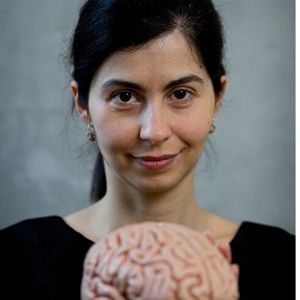Marta leads the Cognitive Neuroscience and Computational Psychiatry Laboratory at the Melbourne School of Psychological Sciences at the University of Melbourne. She is also the Director of the Cognitive Neuroscience Hub and the Melbourne OP-MEG facility.
Having received her PhD from University College London, she completed postdocs at both University California and University College London before moving to the Queensland Brain Institute where she established her independent laboratory. In 2019, the Garrido Lab moved to the University of Melbourne.
The lab’s research is theoretically driven by ideas of Predictive Coding – a computational framework that posits the brain as a predictive, efficient and adaptive machine. The group aims to understand how the brain’s circuitry implements this mental model of sensory input, enabling us to make predictions about the future, and learn and adapt to the contingencies of different environments.
The group use a combination of computational modelling, machine learning and functional brain imaging techniques including magnetic resonance imaging (MRI) magneto-encepahalography (MEG) and electro-encephalography (EEG).
In addition to research on typical cognition in healthy individuals, the group’s mission is to contribute to the understanding of mental illnesses such as schizophrenia, anxiety, and autism – where the predictive processes and brain circuitry are disrupted.
Using imaging technology to scan the brains of volunteers, Marta and her team get a picture of the brain circuits, specifically the connective fibres known as white-matter bundles. By recording electro-magnetic brain activity and examining the dynamics of those networks using mathematics, they can identify brain markers of conversion of schizophrenia. This can help identify the onset of schizophrenia in order to provide important early intervention.
Marta’s work strives to understand; what are the brain pathways that enable critical cognitive processes to still occur outside one’s consciousness, and why is it that certain cognitive processes never emerge into consciousness?
This work has won her the highly competitive Aubrey Lewis Award, Biological Psychiatry Australia in 2019, the Young Investigator Award, Australasian Cognitive Neuroscience Society in 2018, and the University of Queensland Foundation Research Excellence Award in 2016.

